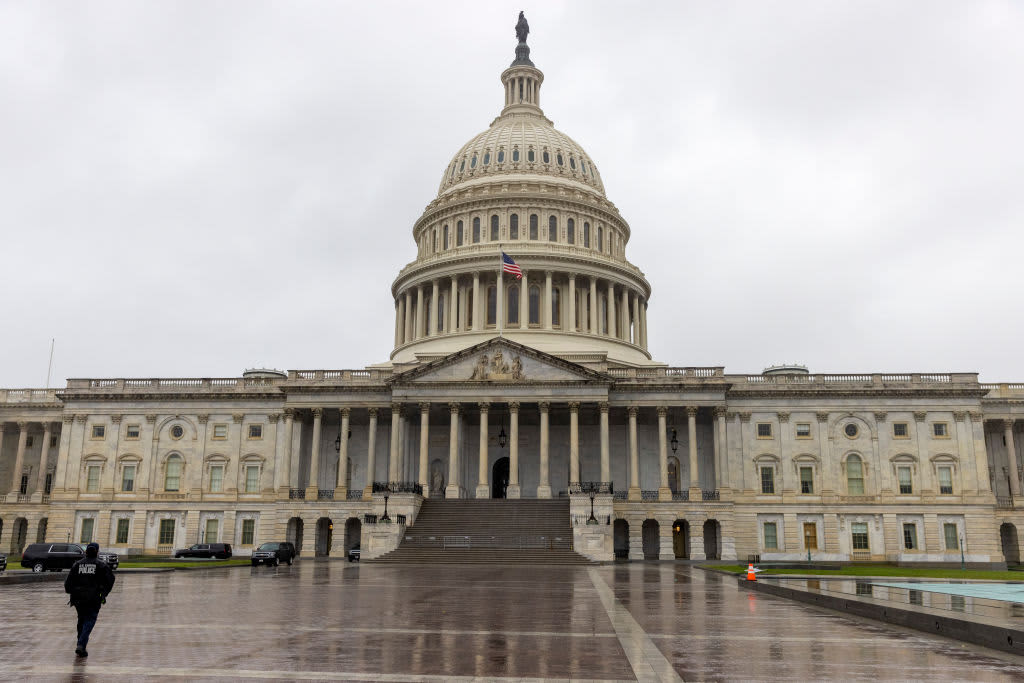Democrats jettisoned a number of proposals to raise taxes on the wealthy in their $1.75 trillion social and climate spending measure. But those taxes are set to increase even if lawmakers don’t touch them.
Starting in 2026, the marginal income-tax rate paid by the highest earners would increase (to 39.6% from 37%), more multimillion-dollar estates would be subject to federal tax and many entrepreneurs would lose a 20% tax deduction on their business income.
That’s due to language in the 2017 tax law, passed by a Republican-controlled Congress and White House, which made these tax cuts temporary.
“Most of the individual provisions of the [law] do expire at the end of 2025,” said Garrett Watson, a senior policy analyst at the Tax Foundation. “Just like [many households] saw a tax cut in 2018, they might see a tax increase relative to current policy in 2026.”
In September, House Democrats proposed repealing changes to the top income-tax rate, estate tax and tax deduction for wealthy owners of pass-through businesses.
The measures, part of a social and climate package then envisioned to cost up to $3.5 trillion, aimed to raise money from households earning more than $400,000 a year and make the tax code more equitable.
More from Personal Finance:
Third stimulus checks still available and scammers are on the prowl
This risk-free bond pays 7.12% annual interest for the next six months
Open enrollment is underway. Here are some tips to maximize your benefits
However, an updated and slimmed-down framework issued Thursday by the White House didn’t call for those tax measures. The framework was the result of months of negotiations between President Joe Biden and progressive and moderate Democrats.
Sen. Kyrsten Sinema, D-Ariz., had rejected many of the rate hikes the House Ways and Means Committee passed last month, leading party officials to scramble for other ways to pay for the plan. Republicans have also been loath to unwind provisions in their 2017 tax law.
The tax measures may still change in ongoing negotiations. Lawmakers may also opt to extend the existing tax provisions before their expiration, or make them permanent.
Income tax rates
Prior to the 2017 tax law, the highest earners paid a 39.6% marginal income-tax rate. (Individuals paid the rate on income exceeding $426,700 and married couples on income over $480,050, according to the Tax Policy Center.)
The law reduced the top rate to 37%. (In 2021, it applies to single taxpayers with income of more than $523,600 and to married couples with income over $628,300.)
The top rate is scheduled to revert to 39.6% in 2026. (The income threshold would be higher than under prior law, however, to account for inflation over the decade.)
Estate tax
The 2017 tax law reduced the number of estates subject to the estate tax, which is a levy on wealth transfer at death.
Estates owe a 40% federal tax once values exceed a certain amount. The tax law roughly doubled the threshold, which was $5.49 million per person in 2017.
(The amount, which changes each year to account for inflation, is $11.7 million a person and $23.4 million for married couples in 2021.)
The share of estates that pay the tax (about 0.2% a year) is at its lowest percentage on record, dating back to 1934.
The threshold would fall to roughly $6 million in 2026 after accounting for inflation, Watson said.
Pass-through deduction
The 2017 tax law allowed entrepreneurs who structure their business as a pass-through (such as a partnership or sole proprietorship) to deduct up to 20% of their business income from taxes. (Such entrepreneurs pay taxes on business income at their individual tax rates.)
The measure was meant to offer rough parity with a tax cut for corporations; the law reduced their tax rate to 21% from 35%.
The rules are complex and don’t apply to all types of pass-throughs. Business owners would lose the tax break in 2026.
The House Ways and Means Committee had proposed limiting the tax break to business owners with income less than $400,000 (or $500,000 for married couples).
